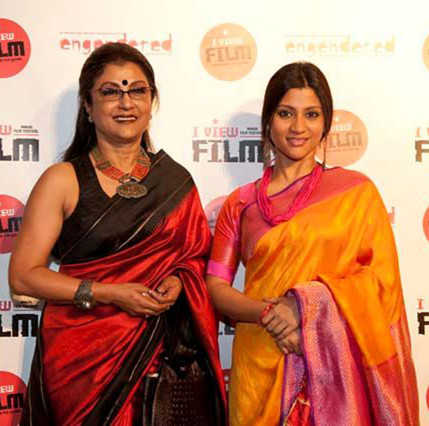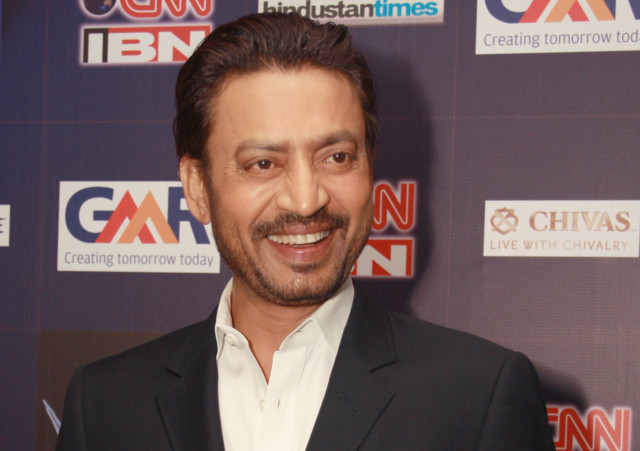
Those in the mood for a typical lengthy Bollywood song and dance musical can always head to the multiplex. Starting this weekend, there’s something different on offer from the subcontinent: a celebration of content-led Indian films at the Abu Dhabi Film Festival (ADFF), which runs October 24-November 2.
This year, the festival celebrates 100 years of Indian cinema with a mix of classics and avant-garde films.
“The other kind of Hindi cinema will reach its people on its own. It doesn’t require the medium of a film festival,” said Raman Chawla, programme advisor for the seventh ADFF. His mission is to create space for all kinds of Indian films and train the spotlight on films that were considered “milestones”.
“We have chosen a handful of the country’s most-admired films by some of its treasured filmmakers. All have made important contributions to the creation of new film sensibilities and cinematic language even as they reflect socioeconomic, political and cultural realities,” said Chawla. Films that deal with the trauma of the Indo-Pak partition and stories that touch upon unrealised dreams of an equal society are some of the highlights, with Guru Dutt’s 1957 classic Pyaasa, Mani Kaul’s Duvidha — based on Rajasthani folklore of a woman taking up a ghost lover — and Jahnu Barua’s Halodhia Choraye Baodhan Khai, a tale of the corrupt feudal elite in Assam in 1980.
“Duvidha was made on the budget that Paheli [had] to provide drinking water to Shah Rukh Khan,” said Kaul, alluding to the 2005 Khan-led Bollywood film that was based on the story of Duvidha and re-interpreted by director Amol Palekar. With no hint of malice towards mainstream films, he explains: “It [Duvidha] was made with very little money. They were shooting with one light and the light gave up in the midst of the shoot. There was only one camera lens and it was shot by still photographer for the first time. It’s a beautiful love story.”
The anecdotes are many. MS Sathyu’s Garam Hawa, which will be screened during the festival, was a film made during the late Indian prime minister Indira Gandhi’s era and courted controversy from its inception. The tale of a Muslim family who choose to stay back in India instead of crossing over to Pakistan after partition and the discrimination they faced stoked fears that the film would incite communal tensions in India.
“It was made during a difficult period in Indian cinema as it was close to the Emergency period. It ran into a lot of trouble with the censors. Indira Gandhi had to apparently be approached. She intervened and cleared the film — which says something about it,” said Kaul.
It’s not just the classics that will be celebrated during the festival; contemporary filmmakers such as Aparna Sen, who is bringing her Bengali horror comedy, Goynar Baksho, will be a part of the ADFF showcase.
“It’s wonderful that we are celebrating 100 years of Indian cinema. So much has changed. We have moved ahead from the earlier linear kind of set up to the digital medium. So many possibilities have opened up… Perhaps, Indian cinema is going to become like photography where there is personal kind of cinema. Films captured on mobile phones, short films are now being welcomed,” said Sen in an interview with tabloid!.
The film reunites Sen with her daughter, Konkona Sen. Sen Jr tells tabloid! that she enjoyed working with her mother again since they share the same world views.
“We don’t feel any generation gap, she is so young at heart. We share similar values and world views. We have got the same fundamentals,” said Konkona Sen.
Bollywood actress Tisca Chopra (who played the mother in blockbuster Taare Zameen Par) will bring her Punjabi film Qissa, co-starring Irrfan Khan, to the festival. She believes there’s much to be celebrated in Indian cinema now.
“We are coming into our own and I believe this is the golden era. To my understanding, cinema is becoming more nuanced. There is cinema that caters to all sections of society. If they want escapist cinema, then there’s the song and dance routine. But there’s also strong multiplex-driven cinema thriving. It has its own set of sensibilities. The indie scene is also thriving. Look at Qissa, it’s a German-Indo collaboration. And there’s a great deal of interest in Indian cinema from the world over,” said Chopra.
All of them dream of a world where good Indian films thrive.
“The classification should always be whether it’s a good film or bad film. Not whether it’s mainstream or not,” said Kaul.













